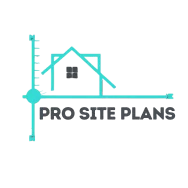The Importance of Site Plans for Construction Projects
When it comes to construction, whether you are building a new home, expanding an existing structure, or starting a commercial development, one of the most important documents you will need is a site plan. A site plan is a detailed drawing that outlines the layout of your property, including existing structures, proposed changes, and the relationship between various features on the land. It’s often required for obtaining permits and approval from local zoning authorities.
In this article, we’ll discuss the significance of site plans, why they are essential for every construction project, and how they can help streamline the permitting process, save time, and ensure that your project complies with local regulations.
What is a Site Plan?
A site plan is a detailed drawing that provides a clear, visual representation of your property and all the structures on it. It typically includes information about the layout of the land, property boundaries, roads, utilities, and the locations of buildings or other proposed structures.
While the specifics of a site plan can vary depending on the scope of the project, a basic site plan will usually feature:
- Property lines and boundaries
- Building footprints (locations of structures)
- Driveways, walkways, and parking areas
- Landscaping elements (trees, gardens, etc.)
- Setbacks (distance from structures to property lines)
- Utilities (sewage, water, gas lines, etc.)
In short, site plans are the blueprints for your entire property, outlining how everything is arranged within its boundaries.
Why are Site Plans Important?
1. Compliance with Zoning Laws
Local zoning laws dictate how land in specific areas can be used, and a site plan helps ensure that your construction project complies with these regulations. Zoning laws typically specify restrictions on the height, size, and placement of buildings, as well as how much of the land can be built on or developed. A detailed site plan allows local authorities to assess whether your project meets the zoning laws and is acceptable for approval.
2. Permit Approval
One of the most critical reasons for creating a site plan is to get your project approved by the local planning and zoning commission. In most cases, before construction begins, you must submit your site plan as part of your application for a building permit. This document serves as proof that your proposed project adheres to all relevant codes and regulations. Without an accurate site plan, your permit application could be delayed or denied.
3. Clear Communication with Contractors and Stakeholders
A site plan acts as a communication tool between you, your contractors, and other stakeholders (such as designers and engineers). It ensures everyone involved in the project has a clear understanding of the layout, scope, and requirements of the job. Having a well-organized site plan can reduce errors, improve efficiency, and keep the project on schedule.
4. Budgeting and Planning
By clearly showing where each element of your project will be placed, a site plan can help you with the budgeting and planning process. You can determine the amount of land needed for parking spaces, walkways, and landscaping, and make adjustments before construction begins. The accuracy provided by the site plan can also help avoid costly mistakes and changes later in the project.
5. Long-Term Property Management
In addition to serving as a valuable tool during construction, a site plan is also beneficial for long-term property management. It provides a reference point for any future developments or modifications to the property. If you decide to add a new structure, install additional utilities, or make other changes, you’ll already have a plan that shows where things are located, helping to guide those updates.
Types of Site Plans
There are several types of site plans, each tailored for different project needs. Below are the most common types of site plans used in construction:
1. Basic Site Plan
This is the simplest type of site plan, typically used for small residential projects or simple zoning approvals. It includes basic information such as property boundaries, the main structure, and existing features like driveways or fences. It’s ideal for homeowners who are planning small additions or home renovations.
2. Medium Site Plan
This type of site plan includes more detailed features, such as measurements between features, trees, driveways, and accessory buildings. It’s often used for projects like home additions, landscaping, or the construction of garages or sheds. It’s a good choice for homeowners looking to expand or make significant improvements to their property.
3. Detailed Site Plan
The detailed site plan is the most comprehensive, providing all the information needed for large-scale residential or commercial developments. It includes everything from the basic and medium plans, but adds more intricate details like landscaping, utilities, drainage systems, and paths. It is essential for larger projects where compliance with detailed zoning laws and construction codes is critical.
The Site Plan Approval Process
The process of obtaining approval for your site plan varies from location to location, but generally involves the following steps:
1. Prepare the Site Plan
Work with an architect, engineer, or a professional site plan provider to create a detailed plan that includes all necessary features and complies with local regulations.
2. Submit for Approval
Submit your site plan to the local building department or zoning authority along with your application for a building permit. Depending on the size and complexity of your project, the approval process may take anywhere from a few days to several weeks.
3. Revisions (if necessary)
If the site plan does not meet all the requirements, you may be asked to revise the plan and resubmit it. This could involve adjustments to the location of buildings, the addition of more detailed features, or other modifications to bring it into compliance.
4. Receive Approval
Once your site plan is approved, you can move forward with applying for a building permit and beginning your construction project.
Conclusion
A site plan is a crucial document for any construction project. It not only helps ensure your project complies with local zoning and building codes but also serves as a guide for your contractors and a reference for future development. Whether you’re building a new home, adding a pool, or planning a commercial property, a detailed and accurate site plan is essential for moving your project forward successfully.
At SitePlansForPermit.com, we specialize in creating custom site plans that meet all local requirements, are accurate, and are delivered quickly. Whether you need a basic site plan or a more detailed version, we’ve got you covered.
If you’re ready to start your project, contact us today for a quote or to discuss your specific site plan needs.

